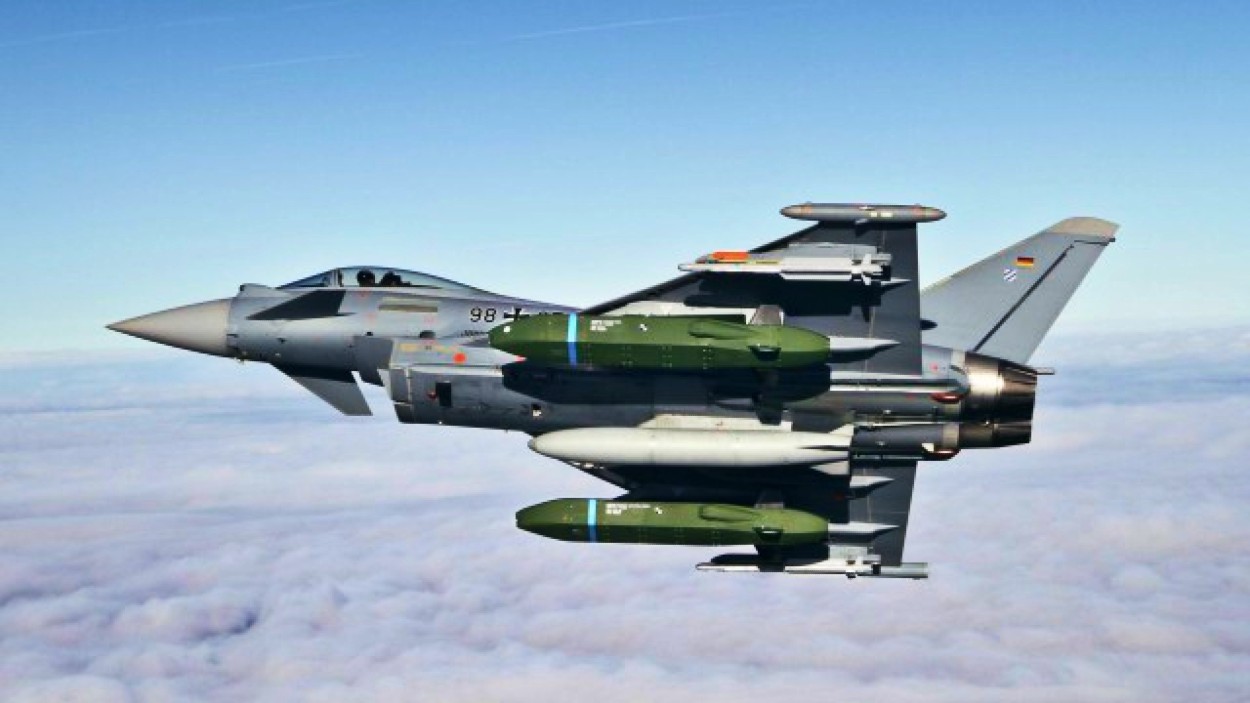In response to persistent appeals from Ukraine for providing long-range missiles, Germany is exploring ways to arm Kyiv with Taurus cruise missiles from its own inventory.
Der Spiegel reported that the German government is currently engaged in carefully classified discussions with defense industry representatives.
The report said these discussions focus on the potential supply of the Taurus missile system to Ukraine, aiming to incorporate software modifications that would effectively prevent Kyiv from targeting Russian territory using these missiles.
German Chancellor Olaf Scholz’s apprehension regarding the escalation of the conflict persists, and over recent weeks, as noted by the publication, the German Ministry of Defense has requested the manufacturer of Taurus missiles to incorporate a suitable limitation on targeted programming in cruise missiles.
As experts suggest, implementing such a system limitation is feasible but will require several weeks.
Scholz’s plan entails approving the delivery of Taurus missiles to Kyiv only after technical modifications have been implemented. This development marks a notable departure in Germany’s position on transferring Ukraine with long-range cruise missiles, facilitated by dialogues with industry figures.
Earlier, both Scholz and defense minister Boris Pistorius consistently emphasized Germany’s primary role in contributing to air defense and tank provisions. Simultaneously, there were frequent indications that Berlin’s decision to supply cruise missiles was tied to the handover of ATACMS operational-tactical missile systems from Washington to Kyiv.
However, the latest report suggests this precondition no longer holds substantial sway in the evolving scenario.
While these software adjustments signify a degree of caution and may extend the delivery timeline by several weeks, the eventual potential unblocking of the Taurus system would bestow Ukraine with an additional potent asset within its arsenal.
Taurus Cruise Missile For Ukraine
German Chancellor Olaf Scholz finds himself increasingly encircled by mounting pressure to take decisive action—specifically, to provide Taurus cruise missiles to Ukraine.
This proposition emerges as a potential bolstering measure to fortify Ukraine’s counteroffensive against the Russian forces. The prospects of Kyiv obtaining the coveted long-range weaponry from Germany seem poised to materialize in the forthcoming weeks.
In a recent development, on August 10, the news portal t-online, citing informed sources within Germany’s ruling coalition, disclosed that the German government is on the verge of announcing its intention to provide Ukraine with the sought-after long-range Taurus cruise missiles.
This announcement, anticipated to occur “in the near future,” marks a notable step forward in this strategic undertaking.
The Ukrainian armed forces, armed with advanced German Leopard tanks and other Western weapons, grapple with significant obstacles in their attempts to breach heavily fortified and mined Russian positions.

Meanwhile, Ukraine’s air force has effectively employed British Storm Shadow long-range cruise missiles, supplied earlier this year, to repeatedly carry out precision strikes on Russian military infrastructure, weapon stockpiles, fuel storage facilities, and command centers.
In retaliation, Moscow has initiated a series of air strikes targeting air bases. This tactical response is intended to counteract the looming threat posed by the deployment of long-range missiles, which has the potential to undermine their ongoing military operations.
In July, France announced its intention to follow the lead of the UK by providing Ukraine with SCALP-EG missiles, the French version of the Storm Shadow. The French missile possesses an effective range of approximately 250 kilometers.
Recent visual evidence made public by Ukraine has confirmed the operational integration of France’s SCALP-EG missiles in the fighter aircraft of the Ukrainian Air Force. However, Germany and the US have displayed a more cautious approach.
Policymakers in Berlin, for instance, hold concerns about potential escalation risks associated with supplying weaponry boasting a range exceeding 500 kilometers, as this could potentially be utilized to strike Russian territory.

Nevertheless, the momentum behind the proposition for the German Taurus long-range missile is swiftly gaining traction, driven by the transfer of British Storm Shadow missiles and French SCALP-EG missiles to Ukraine.
The acquisition of British and French missiles has enabled Ukraine to possess the capability to strike Russian positions located well behind the frontline.
Thus, it would not be surprising to see Germany announce the supply of a long-range cruise missile, albeit with software modifications that would restrict Ukraine from striking Russian territory.
- Contact the author at ashishmichel(at)gmail.com
- Follow EurAsian Times on Google News




